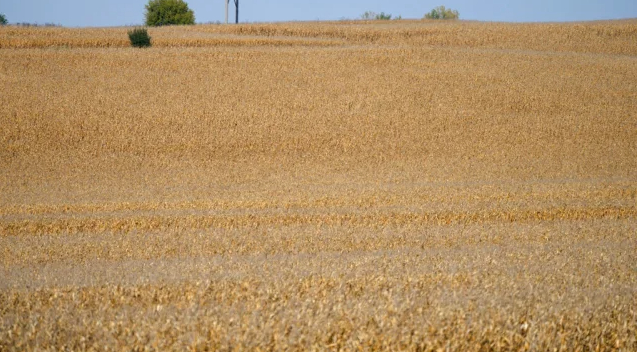June 19, 2025 | 10:26 GMT +7
June 19, 2025 | 10:26 GMT +7
Hotline: 0913.378.918
June 19, 2025 | 10:26 GMT +7
Hotline: 0913.378.918

Fields of corn wait for harvest on a farm Friday, Oct. 8, 2021, near Garretson, S.D. Photo: AP
In 2020, Mexican President Andrés Manuel López Obrador announced the country would prohibit genetically modified corn by 2024, prompting U.S. lawmakers to worry that the change would hurt American farmers and violate trade agreements.
Alexis Taylor, under secretary for trade and foreign agricultural affairs for the Department of Agriculture (USDA), answered questions from lawmakers Wednesday about the response to López Obrador’s decree.
“As it is for many other genetically engineered products that have been studied for decades, the safety of these products are not in question,” Taylor said.
Congress must pass legislation known as the farm bill every five years to set standards for agriculture, nutrition, forestry and conservation. The Senate Agriculture Committee began the process last year by holding field hearings in Michigan and Arkansas.
The Wednesday committee hearing focused on trade and horticulture, with López Obrador’s announcement at the forefront of lawmakers’ minds.
Sen. Roger Marshall (R-Kan.) asked Taylor about the Biden administration’s response to the GMO corn ban and if they would enforce trade agreements between the U.S. and Mexico in the United States-Mexico-Canada Agreement (USMCA).
“In the meantime, the administration has refused to trigger the USMCA to contest Mexico’s planned exclusion of American corn,” Marshall said. “What are we waiting for? What are we waiting for to trigger this mechanism? I mean, I’m tired of talking about it, forming committees and praying about it. We think it’s time for action.”
Taylor said she visited Mexico two weeks ago to highlight concerns about the ban and that officials are still working to find a solution, given the USDA said the ban could disrupt “billions of dollars” in trade.
“We have been very clear that the USMCA gives us a process to go down if we cannot find resolution on this issue and that we reserve all of those rights,” Taylor said. “But at least today we are still productively engaging and hope to find a resolution that doesn’t disrupt trade, impact our producers and ultimately impact negatively Mexican livestock producers who are dependent on this product as well.”
Sen. Deb Fischer (R-Neb.) led a bipartisan group of 25 senators in writing a letter in December expressing concern about Mexico’s proposed prohibition of genetically engineered corn.
“I appreciate [Taylor] standing firm on that and making it clear that GMOs are safe, they are secure, they are healthy, they help to feed the world,” Fischer said.
Senators also asked witnesses about international food aid programs, how to strengthen foreign and domestic markets and protecting science-based advancements in the agriculture industry.
Committee hearings to discuss commodity programs, crop insurance and credit, nutrition programs, conservation, and forestry will continue in coming weeks as part of drafting this year’s farm bill.
Agriculture Committee Chairwoman Debbie Stabenow (D-Mich.) emphasized the significance of prioritizing support for American farmers in the legislation.
“Whether they are selling to their neighbors or exporting products globally — and whether they are growing traditional commodities, specialty crops, or organics — the farm bill helps farmers put food on tables here and around the world,” Stabenow said. “We all have a stake in continuing to make sure this happens. That’s what this farm bill is all about.”
(The Hill)

(VAN) Extensive licensing requirements raise concerns about intellectual property theft.

(VAN) As of Friday, a salmonella outbreak linked to a California egg producer had sickened at least 79 people. Of the infected people, 21 hospitalizations were reported, U.S. health officials said.

(VAN) With the war ongoing, many Ukrainian farmers and rural farming families face limited access to their land due to mines and lack the financial resources to purchase needed agricultural inputs.

(VAN) Vikas Rambal has quietly built a $5 billion business empire in manufacturing, property and solar, and catapulted onto the Rich List.

(VAN) Available cropland now at less than five percent, according to latest geospatial assessment from FAO and UNOSAT.

(VAN) Alt Carbon has raised $12 million in a seed round as it plans to scale its carbon dioxide removal work in the South Asian nation.

(VAN) Attempts to bring down the price of the Japanese staple have had little effect amid a cost-of-living crisis.